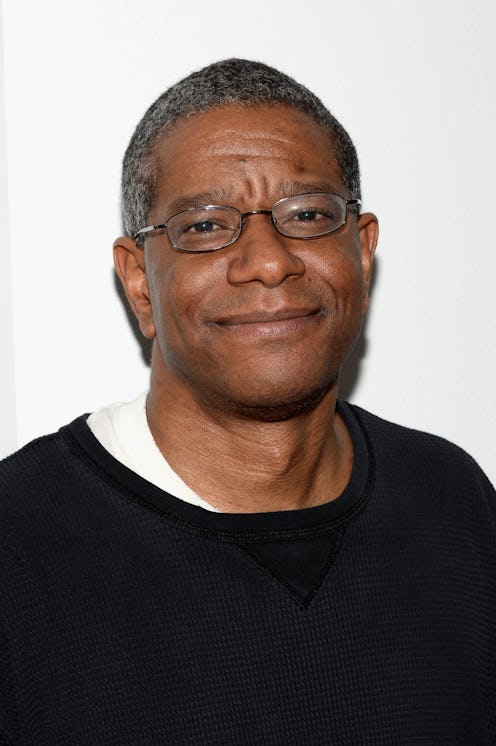Although many of the authors whose books were nominated have enjoyed years, or even decades, of publishing success, you won't find anyone as familiar as Stephen King or J.K. Rowling on the 2016 Man Booker Prize shortlist. So, if you saw The Sellout and wondered, Who is Paul Beatty? , you're not alone.
Update: Paul Beatty is the first American to win the Man Booker Prize. He won for The Sellout.
Beatty was raised in L.A. by a Brooklynite mother who was obsessed with everything about Asia. Yvonne Beatty took her sons to watch Akira Kurosawa movies in a local theater, practiced martial arts, and instituted a rule to bow as one entered and left her home.
In his 20s, Beatty moved to New York City, where he studied creative writing under Allen Ginsberg at Brooklyn College. He became the Nuyorican Poets Cafe's first Grand Poetry Slam Champion in 1990, and went on to publish two poetry collections: Big Bank Take Little Bank (1991) and Joker, Joker, Deuce (1994). In addition to his MFA, Beatty also holds a master's degree in psychology from Boston University.
The Sellout is Beatty's fourth novel, following The White Boy Shuffle (1996), Tuff (2000), and Slumberland (2008). It won the National Book Critics Circle Award for Fiction.
The titular sellout, Me, has spent most of his life in Dickens, a farming community in southern L.A. When signs designating Dickens disappear, effectively rendering the community as an undefined part of the surrounding area, Me paints borderlines and establishes a radical, separatist society within them, one in which schools are segregated and he, the talented farmer son of an unhinged social scientist, owns a self-appointed slave.
Needless to say, The Sellout is a difficult book to talk about. Some critics, such as satirist Ishmael Reed, have taken issue with Beatty's race-related play, which, the author admits, functions as a self-defense mechanism. He tells The Paris Review's Chris Jackson:
There’s the risk of exposing shit about myself that I don’t want anybody to know, but at the same time I have to try to do that. Sometimes the humor is a way to mask all that, so the reader won’t know that what I’m writing about is me, or figure out what side of the argument I stand on. Then there’s a risk in just trying to say what you mean to say.
Despite saying that he "do[es]n't know anything about comedy," Beatty says the humor in his work was inspired by the self-effacing jokes on Richard Pryor's first record. "He’d stab himself and twist the knife," Beatty tells The Guardian. "It was like Joseph Heller — the first time I’d seen that come from a non-white male voice. He was mocking shit that meant a lot to him. Something about his sensibility — and his vulnerability — has really stayed with me."
Beatty is quick to say that he doesn't think his writing is satire, even though that's how many would peg it. "Just poking fun at somebody doesn’t make something satire," he reminds Jackson. However, Beatty's acerbic wit and knack for irony make it difficult to classify his work as anything else.
The 2016 Man Booker Prize winner will be announced on Oct. 25.
